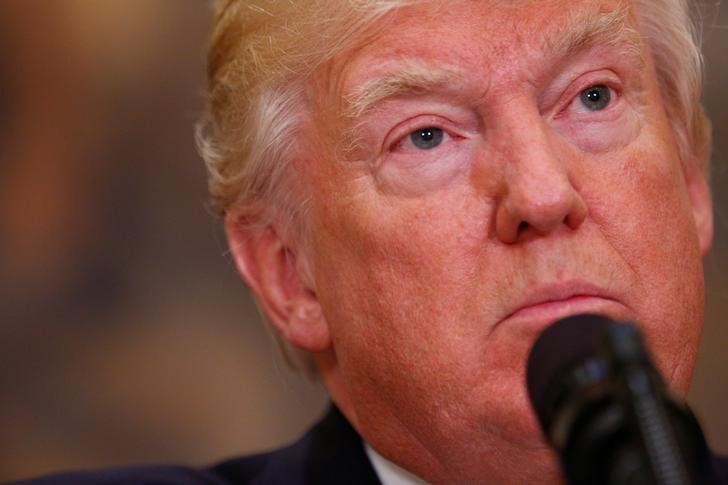(Bloomberg Opinion) -- It’s getting harder and harder to imagine the new Nafta successfully ratified during this Congress. And Donald Trump has only himself to blame for that.
For one thing, the White House strategy on getting the United States-Mexico-Canada Agreement ratified is still incoherent at best. As Bloomberg’s Jenny Leonard reports, there are at least two factions, surrounding Vice President Mike Pence and U.S. Trade Representative Robert Lighthizer, with different ideas of how to get it done. That’s not counting whatever acting chief of staff Mick Mulvaney, who threw a grenade into the mix back in April, currently thinks. And as we all know, even if everyone else was on the same page, the disrupter-in-chief can undermine any kind of strategic approach with an impatient tweet based on whatever he sees on Fox News or hears from whoever he happens to talk to.
The biggest problem, however, is probably that the entire Trump political operation is dedicated to keeping his strongest supporters happy and ignoring everyone else. Jamelle Bouie has an excellent column out on what this means in terms of direct appeals to swing voters. But it’s possible that it’s even more of a problem – for Trump – at the elite level.
In part that’s because Trump’s relentlessly partisan, campaign-never-stops presidency makes it difficult for Democrats to work with him. It’s not so much that they take it personally; while it doesn’t help, politicians are usually pretty good at putting such things aside. But since their constituents are constantly being riled up by one or another thing that Trump has done, working with him is more likely to earn criticism from supporters than it is to earn praise for bipartisanship from swing voters. The closer the 2020 election, the more Democrats are going to be reluctant to hand Trump any wins to campaign on – and, if the election looks promising for them, the closer to the possibility of a Democrat renegotiating the treaty to protect their party’s preferences.
The lack of progress on a trade deal is partly explained by Trump consistently putting both partisanship and personal vendettas ahead of policy achievements. What have Trump’s priorities been for the last couple of weeks? Not the trade treaty, but finding a way to place a citizenship question on the census. That’s a partisan goal. And before that, Trump reportedly spent a great deal of time personally designing his Fourth of July “Salute to America.”
Actually getting the agreement negotiated did seem to be a high priority for Trump. But for whatever reasons, finding a way to get it through Congress has never really appeared to interest him.
The basic problem with Congressional support for the treaty remains the same. Benefits from free-trade agreements are broadly shared but relatively invisible; costs of these treaties are localized and highly visible. Not only that, but the nature of international negotiations, especially on trade, are such that opponents of any agreement always have plausible policy reasons for doing so. It’s always easy to point to things that tougher negotiations theoretically could have obtained. Indeed, that’s always been Trump’s criticism of trade agreements: Not that the U.S. should not have such treaties, but that the existing ones weren’t favorable enough, because of poor negotiating.
Trade has become more popular since Trump was elected. He could use that! If the president put in the effort and organized a real campaign on the Hill, there’s every possibility that he could win on this. But the only campaign he’s ever showed interest in is the one for re-election, and without strong leadership from the White House, it’s getting difficult to imagine Congress acting on this one.
